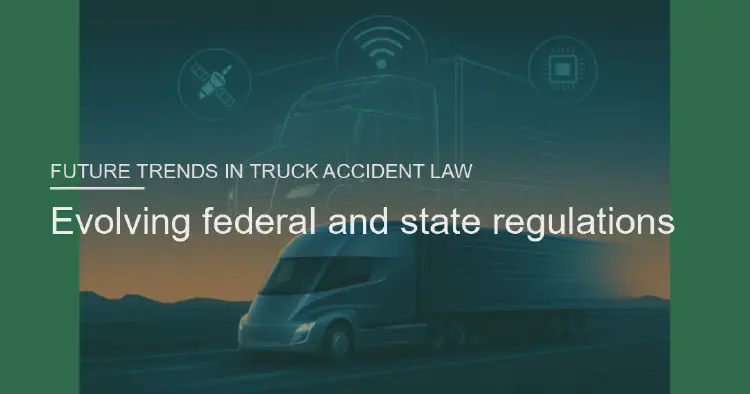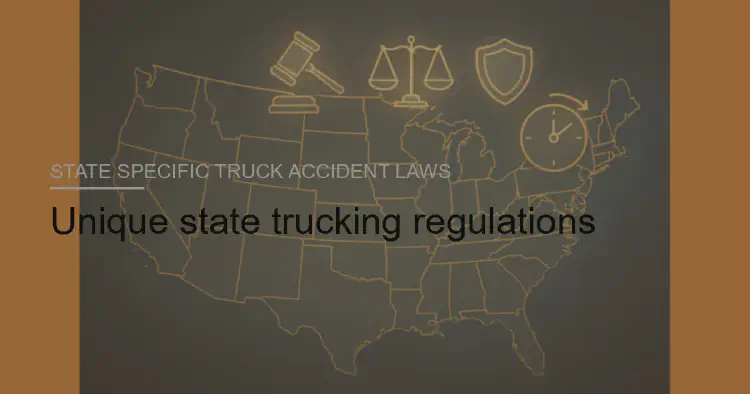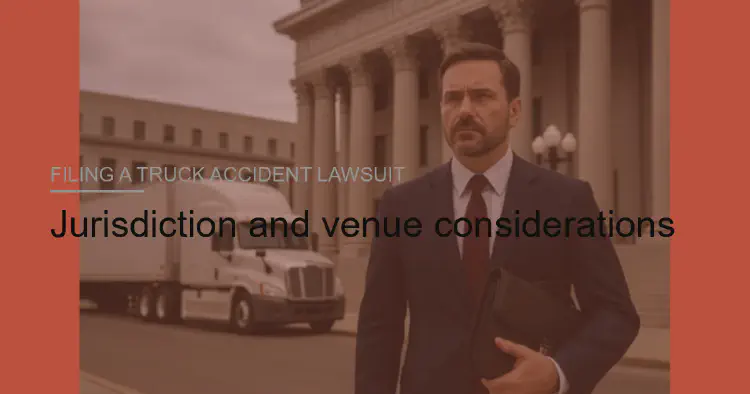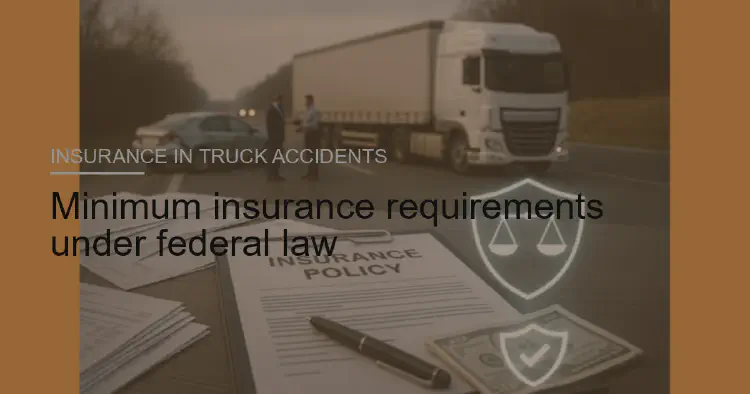
Evolving federal and state regulations
Trucking laws in the U.S. are shaped by both federal and state governments. As technology advances and safety concerns grow, regulations are evolving to address new challenges in the industry.

Trucking laws in the U.S. are shaped by both federal and state governments. As technology advances and safety concerns grow, regulations are evolving to address new challenges in the industry.

While federal rules under the FMCSA create a baseline for trucking operations, individual states impose additional regulations. These state-specific rules can significantly impact liability and compliance in truck accident cases.

When resolving a truck accident case, plaintiffs may receive compensation either as a lump sum or through structured payments. Each option has financial and practical advantages that must be considered carefully.

The value of a truck accident settlement depends on many legal, medical, and practical considerations. Understanding these factors helps plaintiffs and attorneys evaluate fair compensation.

Where a truck accident lawsuit is filed can significantly impact the outcome. Jurisdiction and venue determine which court hears the case and what laws apply.

To ensure that victims of truck accidents can be compensated for damages, federal law mandates minimum levels of insurance coverage for all commercial carriers engaged in interstate commerce.